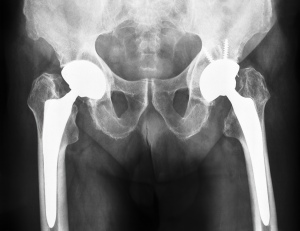Imperial research receives funds to meet global challenges
by Colin Smith

Two innovative engineering projects receive grants from a major UK funder this month.
The researchers received funding from the Engineering and Physical Sciences Research Council as part of Frontier Engineering scheme.
In one project, academics will be looking at improving our understanding of metal alloys to advance how they perform when in use. In the other, researchers will be developing chemicals and pharmaceuticals in a sustainable way using synthetic biology.
Improving hexagonal alloys
Professor Fionn Dunne, from the Department of Materials, will lead a project that will look into improving our understanding of hexagonal alloys. These materials are used extensively by British manufacturers because they are strong, durable, light-weight and do not corrode. For instance, titanium alloy, a type of hexagonal alloy, is used by aerospace manufacturers to make components such as propellers or ‘fan blades’ in engines. These alloys are also used in the health industry to create implantable devices such as knee or hip joints and in the energy industry to make components for nuclear power plants.

Hexagonal alloys are used to create implantable hips
Professor Dunne says: “Hexagonal alloys have a range of incredible properties that makes them very valuable for use by manufacturers. For example, titanium alloy fan blades in jet engines can take the load equivalent of a double-decker bus”
The team will carry out research to understand in more detail the fundamental properties of hexagonal alloys. These alloys resemble at the atomic level three-dimensional hexagonal shapes, which look similar to some of the the coastal rock formations in Ireland called the Giant’s Causeway. This structure, say the researchers, is what gives these alloys their range of properties. By studying this structure in more detail the team want to determine when and how they fail, so that new methods can be developed to make even more advanced hexagonal alloys.
Professor Dunne adds: “Our ambition is to create a step-change in the way that we understand hexagonal alloys. These materials are expensive to make and finding ways of improving their qualities could lead to advancements for British manufacturers and enable them to add more value to the products that they make.”
The £5 million project includes Professor Dunne and his colleagues at Imperial’s Institute of Shock Physics and Department of Mechanical Engineering, along with researchers from the Universities of Oxford and Manchester. Industrial partners include Rolls-Royce, and engineering companies AMEC and Westinghouse.
Industrialising synthetic biology
Professor Richard Kitney and his colleagues will be developing processes for industrialising synthetic biology. This is a field of science that sees scientists re-engineering the DNA in cells so that they perform like microscopic biological factories or ‘biofactories’ that can produce materials such as proteins or enzymes on demand.
Currently, many consumer products such as plastics are made from fossil fuels and this can impact on the environment. Synthetic biology offers a greener and cleaner alternative that doesn’t rely on fossil fuels to produce these materials.
In the project, Professor Kitney and his team will tackle the problem of how to take synthetic biology from the lab bench and develop processes that will enable manufacturers to use it on an industrial scale.
The team will focus on two challenges. The first will be how to produce chemicals from biomass instead of petroleum.
The other challenge that the team will focus on is developing techniques for manufacturing pharmaceuticals using synthetic biology. The aim is to make the process inexpensive, less complicated and enable these drugs to be made to order in the hospital for patients.
Professor Kitney, from the Department of Bioengineering, who took part in the Fringe Festival on synthetic biology at the College, says: “We believe that through our research that ultimately a new, cost effective, energy efficient and sustainable route can be developed to produce chemicals and treatments for patients.”
Article supporters
Article text (excluding photos or graphics) © Imperial College London.
Photos and graphics subject to third party copyright used with permission or © Imperial College London.
Reporter
Colin Smith
Communications and Public Affairs